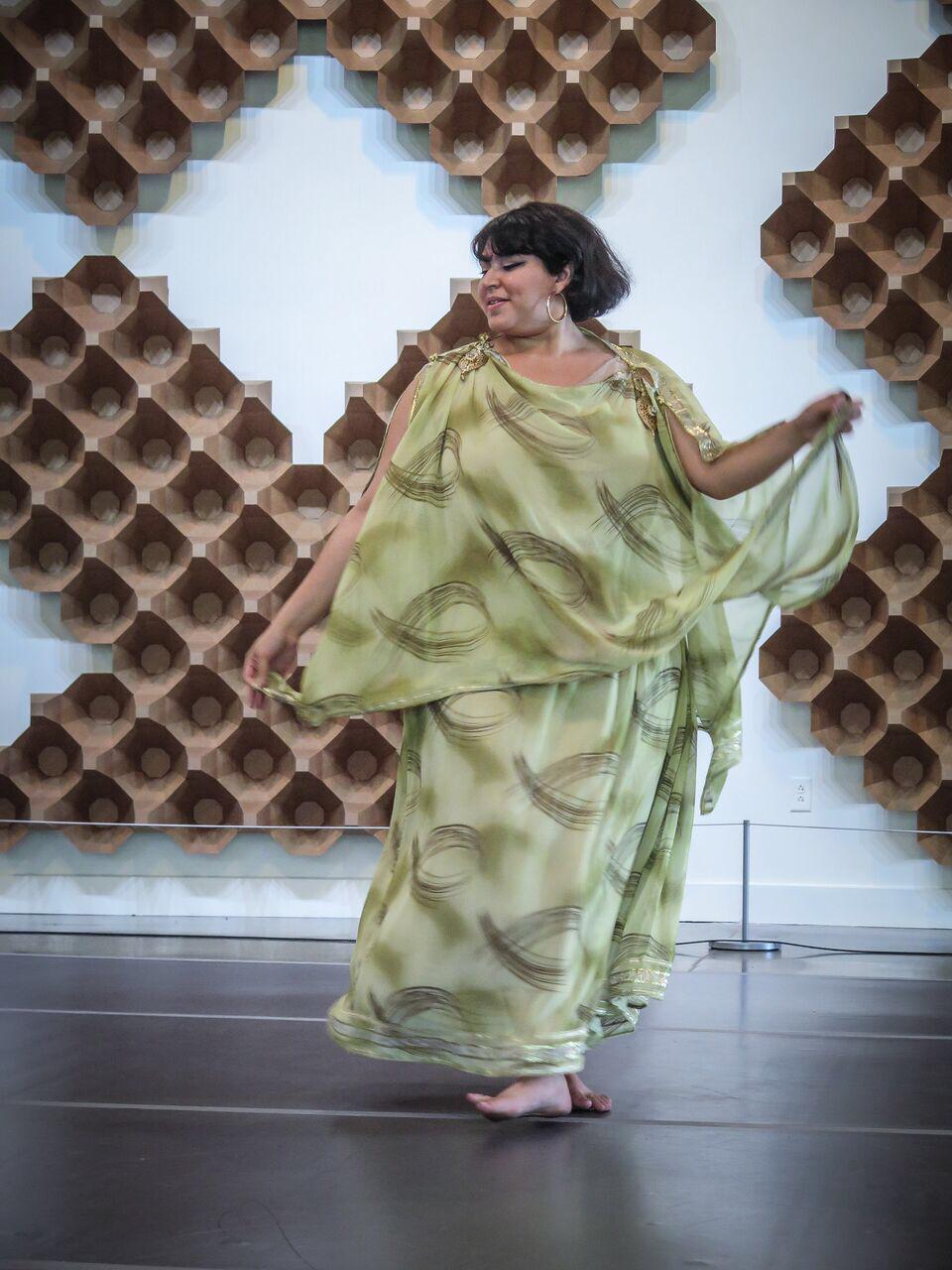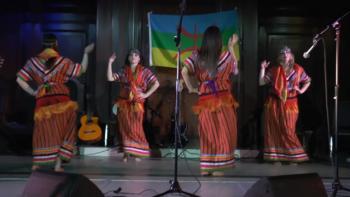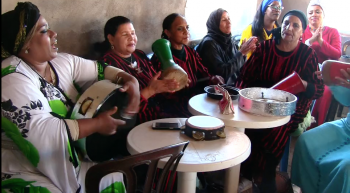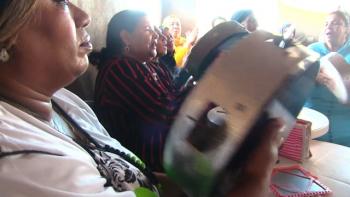Esraa Warda
Esraa Warda is a performance and teaching artist that preserves and transmits traditional Moroccan and Algerian dance forms through movement workshops and interactive performances. A young talent of Algerian origin, Warda is a community-taught dancer under the mentorship of women elders in her family and artists from Morocco and Algeria. She is a firm advocate in the power of intergenerational transmission, women-led traditions, and decolonizing euro-centricity, Orientalism, and oppressed bodies in dance. Warda, meaning "rose" in Arabic, is a rebellious spirit who challenges patriarchy and misogyny towards women dancers in her community and also neo-colonialist impositions on North African culture. She is a cultural warrior driving North African dance styles out of the margins and into the global dance and culture scene.
Warda has been featured in Vogue Arabia, Al Jazeera Francais , NBC Asian America, Wada7, and Hespress - and has taught all over the world from the Old Town School of Folk Music in Chicago all the way to the National Algerian Centre in London. Warda collaborates with world musicians such as Bnat Houwariyat, Morocco's premier all women percussion ensemble based in Marrakech, and has performed at places such as Hassan Hajjaj's Mi Casa es Su Casa Exhibition, NYC'S Museum of Modern Art PS1, Cuba's Havana Habibi Festival, and Marrakech's Festival Ghiwane.
Teaching Artist Pedagogy
Warda aims to reproduce the environment in which she learned to dance -- from her family's living room and local weddings - to the studio. She does so by teaching dance in a down-to-earth, community-centered style, with less choreography and more dance drills. She believes our bodies have a muscle memory and we must "absorb" a new dance vocabulary through rhythm and repetition. She believes rhythm can be "downloaded" unconsciously into the body. And since rhythm is the backbone of traditional dance, this is crucial to North African dance education. Dance workshops are inclusive, Africa-centric, body-positive, and focus on muscle memory and rhythm-based learning (live percussion encouraged). Lectures and educational talks are based on teaching with nuanced historical/social context of North African identity.

Tafsut Imazighen, meaning "Berber Spring" is a dance group of young women who perform traditional Kabyle dance with touches of contemporary choreography. They are performing here for annual Yennayer celebration held at Murmrr Theater in Prospect heights, Brooklyn. Yennayer is the indigenous new year for North Africans.
Dance
Bnat Houariyat, (The girls of Houara) presents a style of Houara (also known as T’houarit) reserved for women.
Music
This video is a segment of Bnat Houariyat, (the girls of Houara), an all women’s folklore group that plays genres named Chaabi and Houara under the leadership of Khadija el Ouarzazia.



